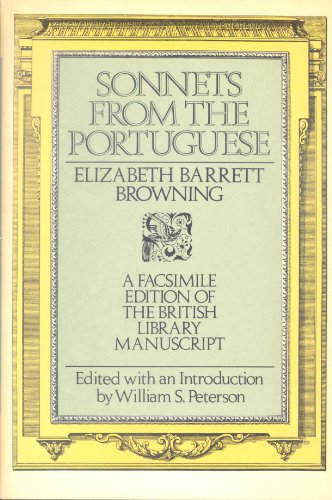

Saving Earth Britannica Presents Earth’s To-Do List for the 21st Century. 18451846 and published first in 1850, is a collection of 44 love sonnets written by Elizabeth Barrett Browning.The human experience of love is the'low ground' she springs off of. 100 Women Britannica celebrates the centennial of the Nineteenth Amendment, highlighting suffragists and history-making politicians. Brownings Sonnets from the Portuguese provide an example of her poetic expression of higher truth.COVID-19 Portal While this global health crisis continues to evolve, it can be useful to look to past pandemics to better understand how to respond today.Student Portal Britannica is the ultimate student resource for key school subjects like history, government, literature, and more.This Time in History In these videos, find out what happened this month (or any month!) in history.#WTFact Videos In #WTFact Britannica shares some of the most bizarre facts we can find.Demystified Videos In Demystified, Britannica has all the answers to your burning questions.

Fast and free shipping free returns cash on delivery available on eligible purchase.
 Britannica Classics Check out these retro videos from Encyclopedia Britannica’s archives. Buy Sonnets from the Portuguese - Illuminated by the Love Letters by Browning, EB online on Amazon.ae at best prices. Britannica Explains In these videos, Britannica explains a variety of topics and answers frequently asked questions. Sonnets from the Portuguese, collection of love sonnets by Elizabeth Barrett Browning, published in 1850. Browning suffered from numerous illnesses throughout her life, eventually succumbing in Florence at the age of 55. She is most famous for her Sonnets from the Portuguese, a collection of 44 love poems published in 1850, and Aurora Leigh, an 1856 epic poem described by leading Victorian critic John Ruskin as the greatest long poem written in the nineteenth century. Browning went on to be recognized as one of the foremost poets of early Victorian England, influencing such writers as Edgar Allen Poe and Emily Dickinson. She began writing poems at a young age, finding success with the 1844 publication of Poems. Her marriage to the prominent Victorian poet Robert Browning caused the final break between Browning and her family, after which she moved to Italy and lived there with Robert for the rest of her life. I love thee freely, as men strive for Right I love thee purely, as they turn from Praise. The daughter of a wealthy family-her father made his fortune as a slave owner in Jamaica, while her mother’s family owned and operated sugar plantations, mills, and ships-Browning eventually became an abolitionist and advocate for child labor laws. Elizabeth Barrett Browning (1806-1861) was an English poet.
Britannica Classics Check out these retro videos from Encyclopedia Britannica’s archives. Buy Sonnets from the Portuguese - Illuminated by the Love Letters by Browning, EB online on Amazon.ae at best prices. Britannica Explains In these videos, Britannica explains a variety of topics and answers frequently asked questions. Sonnets from the Portuguese, collection of love sonnets by Elizabeth Barrett Browning, published in 1850. Browning suffered from numerous illnesses throughout her life, eventually succumbing in Florence at the age of 55. She is most famous for her Sonnets from the Portuguese, a collection of 44 love poems published in 1850, and Aurora Leigh, an 1856 epic poem described by leading Victorian critic John Ruskin as the greatest long poem written in the nineteenth century. Browning went on to be recognized as one of the foremost poets of early Victorian England, influencing such writers as Edgar Allen Poe and Emily Dickinson. She began writing poems at a young age, finding success with the 1844 publication of Poems. Her marriage to the prominent Victorian poet Robert Browning caused the final break between Browning and her family, after which she moved to Italy and lived there with Robert for the rest of her life. I love thee freely, as men strive for Right I love thee purely, as they turn from Praise. The daughter of a wealthy family-her father made his fortune as a slave owner in Jamaica, while her mother’s family owned and operated sugar plantations, mills, and ships-Browning eventually became an abolitionist and advocate for child labor laws. Elizabeth Barrett Browning (1806-1861) was an English poet.







 0 kommentar(er)
0 kommentar(er)
